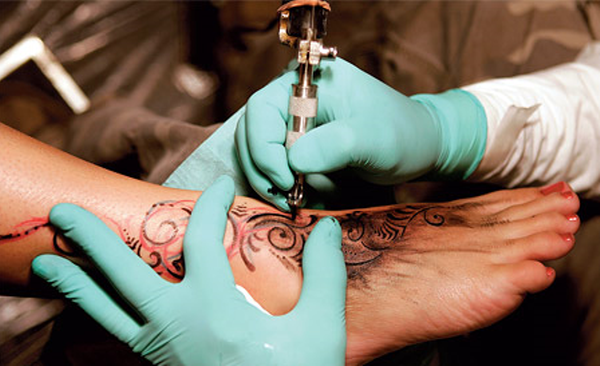Instruction
1
In the application of a tattoo, which will look qualitatively and bright, there are a number of nuances that should be considered a master tattoo artist. First and foremost, the quality of the picture depends on the quality and a good contour. Go through the first loop once, using from three to five needles, and then a second time. Adjust the clicking of the needles, depending on how thick must be the circuit.
2
Remember, what you draw from the genre of the picture depends on the type of circuit. In a realistic image the contour should be subtle, strikeovers and uneven. Smooth and hard contour required in the ornamental tattoos that mimic a variety of patterns and tribal designs.
3
For realistic tattoos, it is best to regulate the thickness of the circuit in the process in order to make the image look more dynamic and brighter. Also with the help of a competent outline you can highlight the shade of the picture.
4
The shade is also very important for the overall perception of tattoos. Portray shadows, making the rotational motion of the needles in the right places of the picture. The more dark part of the image you paint, the more dark and rich shadow should be applied on this place; for the lighter areas of the picture can cause blurred and translucent shadow.
5
Depending on the type of drawing you can do the shadow color, and simulate the brush strokes of this brush.
6
Think carefully and observe the color scheme of the tattoo. Colors can be random, ordered by the client, and can be determined by the meaning of the tattoos, her ritual or heraldic meaning. It is best to take as a basis a bright, clear and contrasting colors from time to time, interspersing them semitones in the case of volumetric images.
7
All halftones must be kept in the same range that the picture looked harmoniously and does not excessively riot of colors.
